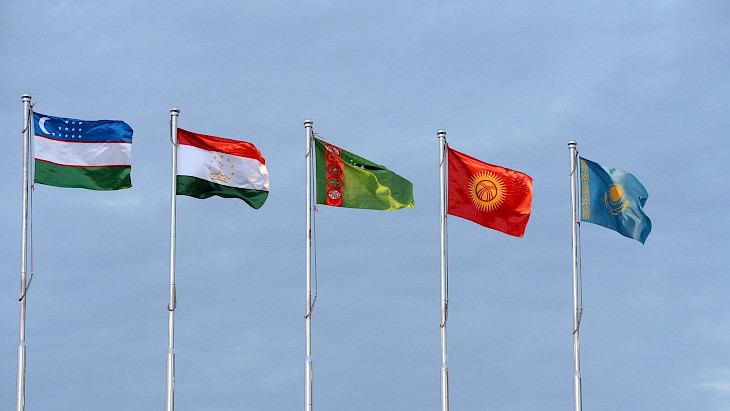The upcoming presidential term of Donald Trump could mark a new chapter in U.S.-Central Asia relations. Calls have emerged on Capitol Hill to repeal the Jackson–Vanik amendment for Kazakhstan and Uzbekistan, paving the way for full-fledged trade relations. This potentially historic decision could reshape the region’s geopolitical landscape, offering new opportunities while inevitably creating new challenges, according to Russia’s Nezavisimaya Gazeta.
During U.S. Senate hearings on the confirmation of Marco Rubio as Secretary of State in Trump’s administration, Senators Steve Daines and Gary Peters, representing the Central Asia Caucus (a group of lawmakers promoting the region’s interests), raised the issue of repealing the Jackson–Vanik amendment for Kazakhstan and Uzbekistan. They regard it as a key step toward normalizing relations with these Central Asian nations.
The amendment, introduced in 1974 targeting the USSR, was inherited by post-Soviet states after its dissolution. Many of these, including Russia, Ukraine, and Kyrgyzstan, have already been exempted. However, Kazakhstan, Tajikistan, Turkmenistan, and Uzbekistan remain under its restrictions, which include higher tariffs and a ban on state credits.
Daines also referred to Central Asia as an “unduly overlooked region requiring greater attention.” “Together with Senator Murphy, we are working on advancing cooperation in the ‘C5+1’ format,” he noted. “We hope to collaborate with President Trump, perhaps even organizing a summit. With the troop withdrawal from Afghanistan, the region assumes particular strategic importance. We need allies in Central Asia, and we are committed to moving actively in this direction.”
The senator urged Rubio to focus on Turkmenistan’s vast gas reserves, squeezed between Afghanistan, Iran, and Russia. Turkmenistan has been supplying gas to China for 30 years but struggles to access global markets. He suggested discarding outdated human rights issues in dealings with Central Asian countries.
Rubio questioned the amendment’s effectiveness as a tool for pressuring Central Asian states: “Some view the amendment as leverage for concessions in human rights or curbing cooperation with Russia. But I consider it a meaningless anachronism.”
Rubio highlighted Kazakhstan’s successful WTO accession, confirming its market economy status. He stressed that repealing the amendment requires legislative changes and expressed hope for congressional support: “I am ready to work with you on repealing the amendment, sharing your perspective on its importance,” he told Senator Daines.
Astana and Tashkent have repeatedly sought exemption from the Jackson–Vanik amendment, but decisions were consistently delayed due to the need for congressional approval. In March 2024, Daines and Congressman Mike Rogers met with Uzbek President Shavkat Mirziyoyev in Tashkent, discussing the amendment’s repeal, among other issues. In November 2024, discussions in Washington involved congressmen, State Department representatives, diplomats, and business leaders. Kazakh Ambassador to the U.S. Yerzhan Ashikbayev emphasized the amendment’s repeal as crucial for his country, noting Kazakhstan’s progress, leadership in attracting investments in Central Asia, and pivotal role in ensuring regional stability and security.
Bakhtiyor Ergashev, Director of the Ma’no Center for Research Initiatives, believes repealing the Jackson–Vanik amendment for Uzbekistan and Kazakhstan holds little practical significance. These countries have minimal high-tech goods, particularly dual-use items, in defense and military-technical sectors. “What’s interesting is the amendment’s repeal coinciding with Uzbekistan’s adoption of a space activity law. While the connection is unclear, it is symbolic,” Ergashev told Nezavisimaya Gazeta.
Ergashev noted that the amendment’s repeal is unlikely to significantly impact Kazakhstan’s or Uzbekistan’s relations with Russia or other Central Asian countries. “Under sanctions, these nations’ high-tech cooperation with Russia is limited, and the amendment’s repeal is unlikely to change this, given the ongoing secondary sanction constraints. The repeal appears more of a political gesture toward the business elites of Kazakhstan and Uzbekistan rather than a real economic lever. With their underdeveloped high-tech sectors, the amendment primarily benefits players like China and Russia, who could further develop their technologies in Kazakhstan and Uzbekistan,” Ergashev argued.
He emphasized that the U.S. initiative is the result of long-standing requests not only from Kazakhstan and Uzbekistan but also from other post-Soviet states, including Azerbaijan. Armenia, Kyrgyzstan, and the Baltic states have long been exempt. For the U.S., this is a low-cost way to strengthen ties with Central Asia. By offering the amendment’s repeal, the U.S. likely expects certain commitments from Astana and Tashkent, possibly involving more active participation in sanctioning Russia. “The Jackson–Vanik amendment must be viewed in the broader context of U.S. policy toward Central Asia, aiming to separate these nations from Russia politically, culturally, ideologically, and spiritually. The Jackson–Vanik maneuver is a small part of a larger process of reshaping the post-Soviet space,” Ergashev concluded.
Alexander Karavayev, an expert at the Caspian Institute for Strategic Studies, views repealing the Jackson–Vanik amendment for Kazakhstan as primarily politically significant while creating incentives for long-term investments. “So far, Kazakhstan, like other CIS countries, has annually undergone procedures to suspend the amendment for American investors, particularly in the oil and gas sector. Kazakhstan’s WTO accession has effectively removed these restrictions. However, the formal repeal is important for diversifying investments and reducing dependence on China, Russia, Turkey, and the Persian Gulf nations. Direct trade with the U.S. is unlikely to increase significantly (already at its $4 billion peak), but American investment inflows are beneficial to Kazakhstan,” Karavayev told Nezavisimaya Gazeta.
He recalled that last year, USAID provided Kazakhstan with Dell servers and software for customs management, enabling the U.S. to monitor Kazakhstan-Russia trade. Modern goods-marking technologies, including GPS navigation, allow Americans to track trade flows online. These monitoring capabilities may strengthen U.S. confidence in repealing the amendment.
“The chances of repealing the amendment are high,” Karavayev noted, citing Kazakhstan’s diplomatic successes. “Kazakh lobbyists have been actively informing congressmen and gathering signatures for years. Last year, about 40 congressmen supported repealing the amendment. If realized, this would be seen in Kazakhstan as a significant diplomatic victory.” The amendment’s repeal is expected to open new economic opportunities and strengthen Kazakhstan’s international standing.
CentralAsianLIGHT.org
January 20, 2025

